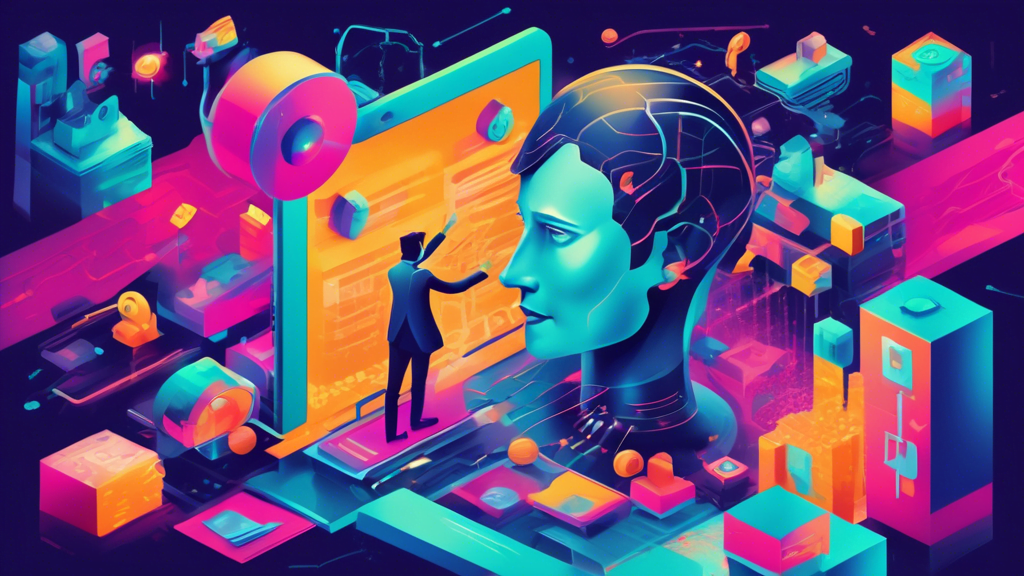AI’s Financial Roller Coaster:
Navigating AI’s Promises and Pitfalls: Financial Instabilities, Regulatory Push, and Ethical Concerns
Have you ever noticed how quickly things change in the tech world? One minute a company is on top of the world, the next minute they’re trying to climb back up. Just take Nvidia, for example. While they were riding high on the wave of AI advancements, they’ve recently hit a financial snag, reflecting a broader financial gap in the AI industry. This fluctuation is not just numbers on a stock ticker. It’s a reminder of how volatile and impactful the industry can be. Perhaps this is why there is a growing push among U.S. senators for a bipartisan strategy to regulate AI. Given the pace at which AI is evolving, substantial funding for research and development isn’t just a want—it’s a necessity.
The call for regulation isn’t coming out of thin air. It’s driven by real concerns. For instance, there are worries about the environmental impact of AI operations. Think about the data centers humming away day and night, consuming vast amounts of energy. It’s not just a matter of costs but also environmental responsibility. The AI sector needs to tread carefully here, balancing innovation with sustainability. Nobody wants a future where intelligent machines contribute significantly to climate change, right?
AI’s Financial Roller Coaster: AI Innovations and Their Quirky Misunderstandings
Let’s shift gears to something a bit more fun—AI in entertainment! Did you catch Will.i.am’s new SiriusXM show with an AI-generated co-host? It’s an intriguing blend of tech and creativity. But while AI co-hosts are fun, they also reflect a broader trend of integrating AI into various industries. Even in education, UCLA has jumped on the bandwagon, incorporating AI software into its business curriculum. Imagine having an AI helping you through your studies! It’s not just futuristic—it’s happening now.
However, with great power comes the potential for great misuse. Just look at the Maryland school official who allegedly used AI to stage a fake racist incident. Or the deepfake debacle in Baltimore County, where a teacher created a deepfake of a school principal. These incidents underscore the darker side of AI technology, where misuse can lead to serious real-world consequences. It’s a stark reminder that while AI can offer significant benefits, there must be robust oversight to prevent abuse. Cloudflare’s recent decision to block AI scrapers to boost security is a step in the right direction, but it can’t be the only line of defense.
Read About Exploring Ethical Issues in Artificial Intelligence
And the music industry isn’t staying quiet either. Major labels have filed lawsuits against AI firms for copyright violations, claiming that AI-generated songs are stepping on their toes. It’s a murky area. Who owns the rights to a song generated by an algorithm? These legal battles will likely shape the future of AI’s role in creative fields.
AI’s Financial Roller Coaster: Looking Ahead
Lastly, there’s some light at the end of the tunnel for users worried about security. Cloudflare’s AI assistant is here to ease some of those concerns. It helps users query security event data, making it easier to spot potential threats. It’s like having Sherlock Holmes but in your server room. These developments show that, while AI brings unique challenges, it also offers innovative solutions that make our digital lives safer and more efficient.
AI offers incredible potential, but with that potential comes the need for diligent regulation and ethical responsibility, said tech enthusiast Jane Doe.
Please Support Us Across All Platforms!** Click Here to explore and follow us on our other platforms. Your support helps us grow and continue providing great content! —

AI’s Financial Roller Coaster: FAQs
How much has the US invested in AI?
The United States has significantly increased its investment in artificial intelligence (AI) over the past few years. In 2021, the federal government announced plans to invest $1 billion through the National AI Initiative Act of 2020, which aims to bolster AI research, development, and education. Additionally, various federal agencies, including the Department of Defense, have dedicated substantial budgets to AI initiatives, bringing the total investment to several billion dollars annually. This funding supports a wide range of AI applications, from defense and healthcare to energy and transportation, ensuring the U.S. remains competitive in the global AI landscape.
How is AI used in the financial industry?
AI is revolutionizing the financial industry in numerous ways. It enhances the efficiency and accuracy of various operations, including fraud detection, risk management, and customer service. For instance, machine learning algorithms analyze transaction patterns to identify fraudulent activities and prevent financial crimes. AI-driven chatbots and virtual assistants provide personalized customer support, handling inquiries and resolving issues quickly. In investment banking, AI models predict market trends, optimizing trading strategies and portfolio management. Furthermore, AI automates repetitive tasks such as data entry and compliance checks, reducing operational costs and minimizing human error. Overall, AI’s integration into finance is streamlining processes, improving decision-making, and fostering innovation.
How is AI impacting employment in the economy and finance?
AI is having a profound impact on employment across various sectors, including the economy and finance. While AI automates many routine and repetitive tasks, potentially reducing the need for certain job roles, it also creates new opportunities. In the financial industry, AI-driven automation has led to the displacement of some traditional roles, such as data entry clerks and customer service representatives. However, it has also generated demand for new positions, including AI specialists, data scientists, and cybersecurity experts. Additionally, AI is enhancing the productivity of existing roles by providing advanced tools and insights, enabling employees to focus on more strategic and creative tasks. The overall impact of AI on employment is complex, with both job displacement and creation occurring simultaneously, necessitating a focus on reskilling and upskilling the workforce to adapt to these changes.
Is there an AI tool for financial analysis?
Yes, there are several AI tools designed specifically for financial analysis. These tools leverage machine learning algorithms and data analytics to provide deep insights into financial data, aiding in investment decisions, risk management, and market predictions. Notable examples include:
- Kensho: Developed by S&P Global, Kensho uses AI to analyze market events and economic data, offering predictive analytics and investment insights.
- AlphaSense: This AI-powered search engine helps financial analysts find relevant information quickly, enhancing research efficiency and decision-making.
- Ayasdi: Ayasdi employs machine learning to uncover patterns and relationships in complex financial data, assisting in risk assessment and regulatory compliance.
- Bloomberg Terminal: While not solely an AI tool, Bloomberg Terminal incorporates AI features such as sentiment analysis and predictive analytics to support financial professionals.
These tools enable analysts to process vast amounts of data rapidly, identify trends, and make informed decisions, ultimately improving the accuracy and efficiency of financial analysis.
